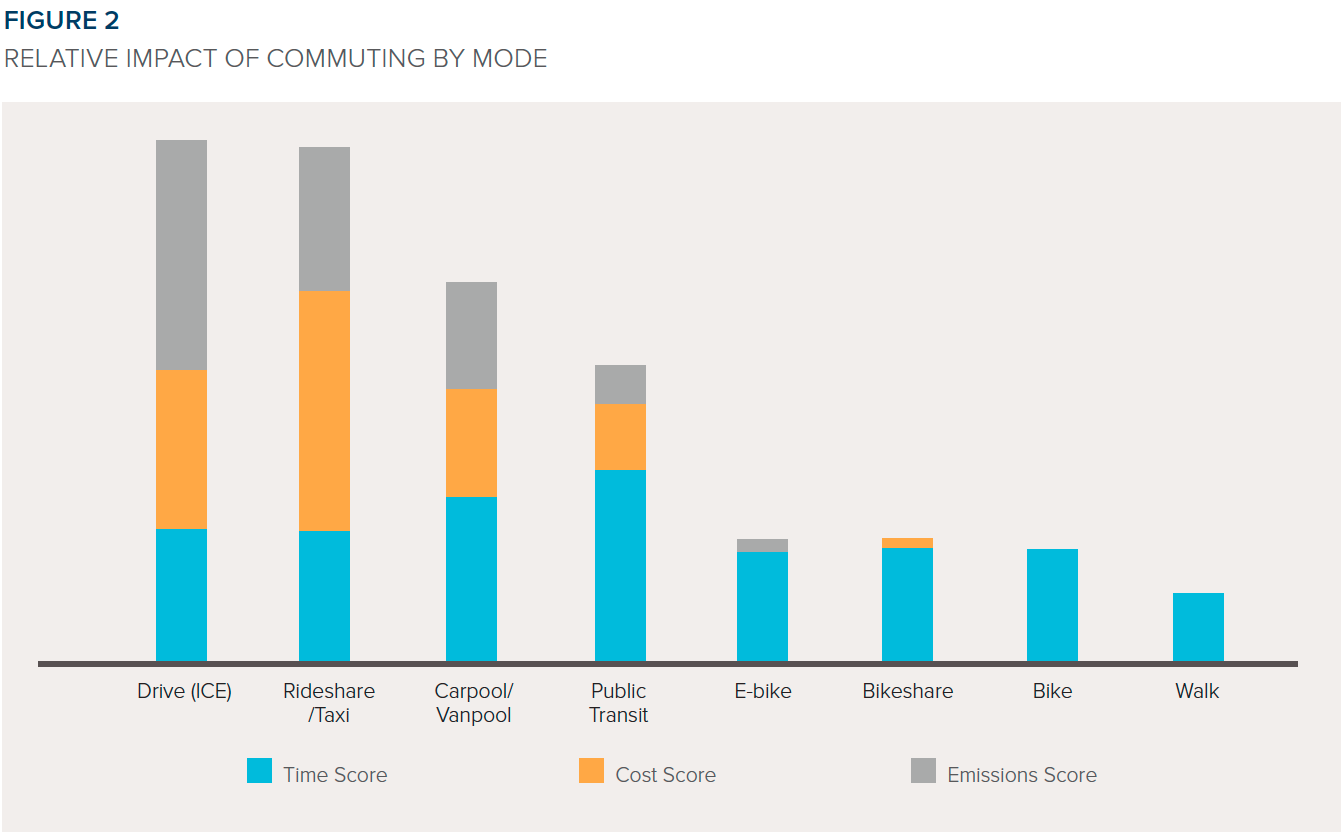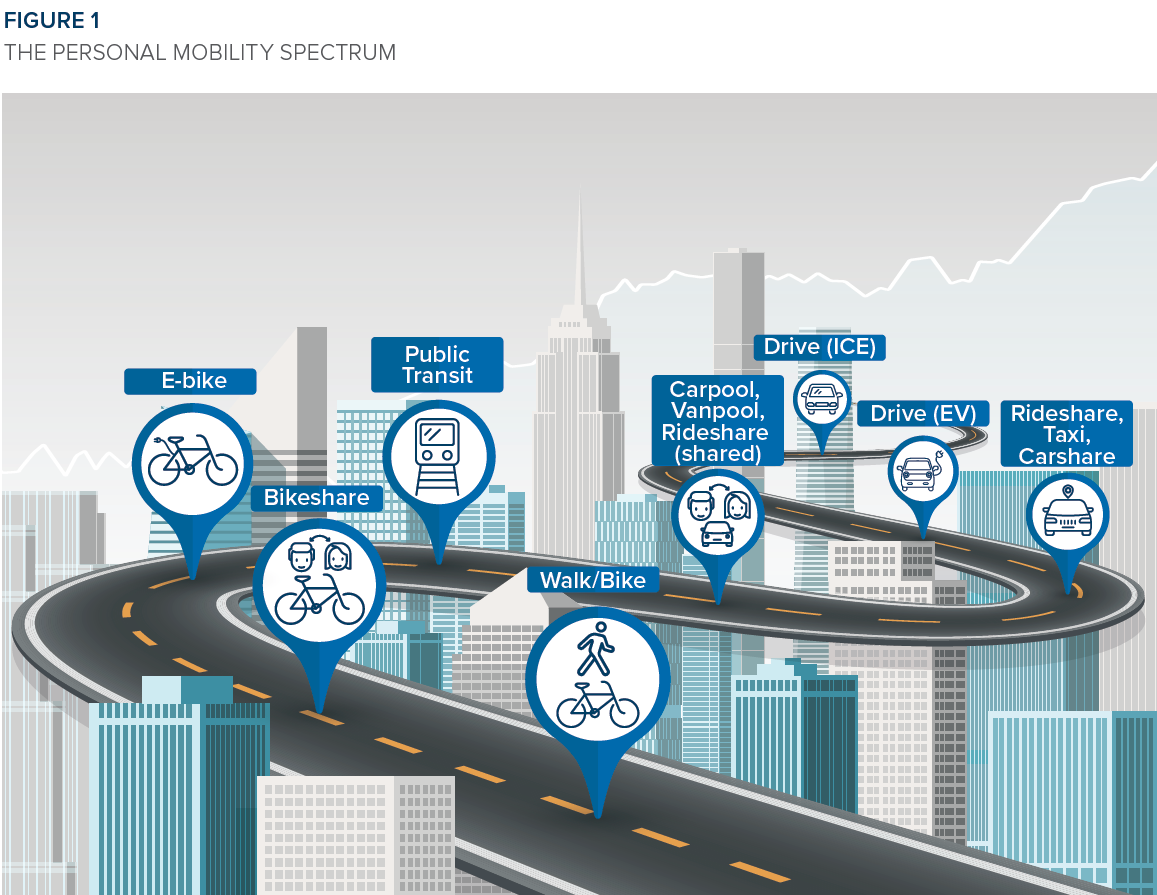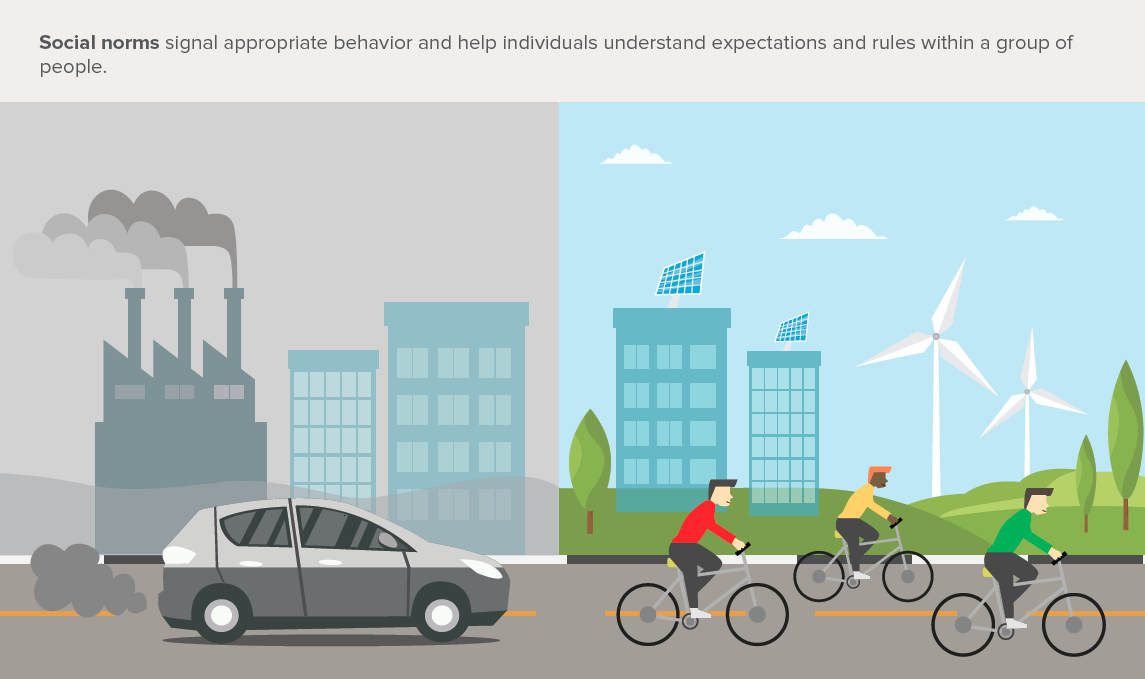
Report | 2018
Mapping Incentives to Change
How Commutifi's Commuter Score Can Influence Sustainable Commuting
The costs of commuting are widespread, City leaders, transportation planners, and companies are looking to implement commuting solutions to ensure employees are happy and healthy, while simultaneously saving cities and companies money and helping the planet.
Behavioral economics is an underutilized tool amongst these decision makers to understand how best to nudge individuals toward desired behaviors while maintaining individuals’ freedom of choice in evaluating their full spectrum of commuting choices.
Commuter scores—like that offered by Commutifi—leverages mobility-focused behavioral economics insights from RMI in order to encourage improved commuting and can be a powerful tool to provide commuting managers, such as those from companies, cities, and campuses, with individualized and entity-wide time, cost, and carbon scores that quantify commuting problems and inform possible solutions—while also quantifying the impacts of implemented programs.
In Mapping Incentives to Change, RMI offers a seven step process for developing an effective commuting program, leveraging commuter scores to quantify and address problems and evaluate solutions, and real-world examples of how behavioral economics and commuter scores can be applied effectively.


